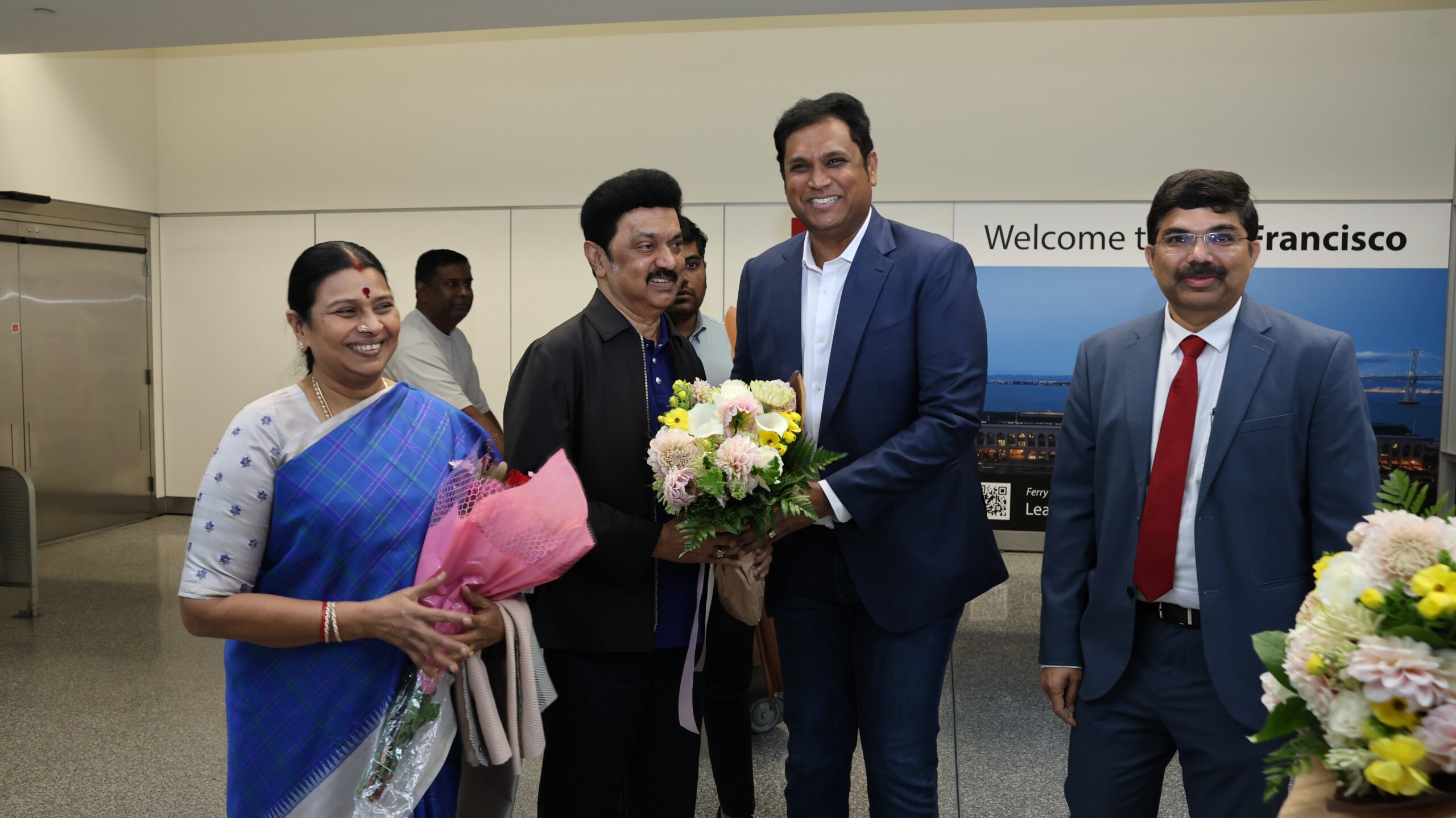In a world where governments play a pivotal role in shaping the socio-economic landscape, the Tamil Nadu government, under the leadership of MK Stalin, has seemingly emerged as a beacon of hope and progress. The Dravida Munnetra Kazhagam (DMK) government’s array of financial assistance and beneficiary schemes are not just policies on paper but lifelines that have touched the lives of millions across the state.
From empowering women and aiding the differently abled to revolutionising education and agriculture, these initiatives are a testament to a government that cares, or at least that’s how the narrative goes according to the DMK’s IT wings and propaganda machines. Let’s unravel the layers of these transformative schemes now and their impact on Tamil Nadu.
The Tamil Nadu government’s 2024 budget is expected to reach ₹3,65,321 crore. Almost 10.5% is spent on welfare programmes for the poor and disadvantaged. The budget contains a projected subsidy of ₹35,280 crores for 2023-2024.
In 2023, the central government led by the BJP allocated Rs 8.28 lakh crore ($100.77 billion) from its 45 lakh crore budget to social welfare projects, a significant increase (17%) from the DMK administration’s machinations. The figures, at least to my knowledge and interpretation indicate that the Centre, which has been accused of being a fascist and anti-minority is more pro-welfare. But this essay is not about the Centre’s contributions, today we will dissect the welfare schemes announced by Stalin and his DMK government.
Schemes for Women: Empowering the Pudumaipenn
In a significant stride towards women’s empowerment, the Pudumaipenn Scheme stands out. Offering a monthly stipend of Rs.1000/- to 2,76,216 female students who have progressed from 6th to 12th grade in government schools to pursue higher education, this initiative is more than just financial assistance; it’s a statement that the future of Tamil Nadu is female. This initiative is costing the state government nearly 28 crore each month.
Similarly, the Kalaignar Women’s Rights Scheme (Kalaignar Urimai Thittam) furthers the cause of self-reliance and economic development among women, proving that the state is laying a concrete foundation for women to thrive in every sphere of life. The scheme benefits 1.15 crore women, who receive a monthly stipe-end of Rs 1,000 which sets the DMK govt back by 1,150 crore every month.
Revolutionising Education: Breakfast to Books
The Chief Minister’s Breakfast Scheme, providing nutritious breakfasts to 31,000 government Primary schools, which is enjoyed by a staggering 17 lakh students, is a pioneering initiative aimed at tackling classroom hunger and enhancing academic performance. This alone is said to cost the government nearly 500 crore each year.
How did we arrive at these figures?
The govt has advertised the data on its TN Social Welfare website – that it spent 33 crore for 1,14,095 primary school children studying in 1,545 Government schools, and if that data is extrapolated – 33,00,00,000 ÷ 1,14,095 x 17,00,000 = 491.69 crore.

Coupled with the Chief Minister’s Rural School Development Scheme, which focuses on improving the infrastructure of rural schools, these efforts are breaking the barriers to education one meal and one brick at a time.
Embracing Inclusivity: Supporting the Differently Abled
The Monthly Maintenance Allowance for Differently Abled Persons ensures that financial constraints do not hinder the well-being and dignity of differently abled individuals in Tamil Nadu. This scheme is a beacon of hope for nearly 2.1 lakh people who are benefitting from this policy. They will now receive monthly assistance of Rs 2,000 each month, adding the total cost to the government by another 42 crore rupees.
However, the benefits won’t reach the individuals in cash, they will be made available to them in the form of special fund allocation for those waiting for scholarships, a hike in remuneration for 1,294 special teachers and trainers working in special schools and primary training centres, marriage assistance and even free rides in government buses. This policy illustrates the government’s dedication to creating an inclusive society where everyone has a fair chance to succeed.
Youth and Employment: Tamil Nadu Govt Crafting the Future
The Naan Mudhalvan Scheme is a dynamic initiative providing skill training and employment opportunities to the youth, shaping the architects of tomorrow’s Tamil Nadu. Similarly, the Annal Ambedkar Skill Development Scheme targets Scheduled Castes and Scheduled Tribes, offering them avenues for employment and self-sufficiency. These programs are not just about jobs; they’re about building a resilient and skilled workforce ready to take on the global stage.
Healthcare at Your Doorstep: Makkalai Thedi Maruthuvam
Perhaps one of the most impactful schemes, Makkalai Thedi Maruthuvam, brings healthcare services directly to the people’s doorsteps. This initiative ensures that medical care is not a privilege but a right accessible to all, including industrial workers and migrants who often find themselves marginalised in the healthcare ecosystem. DMK claims the scheme has benefitted 1 crore 70 lakh people overall and it has set aside a tentative budget of Rs 258 crore covering seven districts.
Cultivating Prosperity: Supporting Agriculture
The Kalaignar All Village Integrated Agricultural Development Scheme is a comprehensive program aimed at turning 26,000 acres of barren land into arable land and aiding 28 lakh farmers in the state, according to a state government press release.
Beyond the Horizon: Other Noteworthy Initiatives
Tamil Pudhalvan Scheme: Focusing on higher education opportunities for male students studying in government schools from classes 6 to 12, 3 lakh boys have so far been promised Rs 1000 per month ensuring Tamil language and heritage are not barriers to academic excellence. The state’s coffers will have to cough up another 30 crore for this project each month.
Navigating Through Debt: A Balancing Act
Tamil Nadu, under the stewardship of MK Stalin and the DMK government, is a testament to how visionary leadership can transform socio-economic landscapes despite financial constraints. With a focus on inclusivity, education, and women empowerment, the state’s array of schemes and initiatives exemplify a commitment to sustainable development. This narrative is not just about the policies but the philosophy that drives Tamil Nadu’s progress, juxtaposed with the challenges of managing a burgeoning debt.
However…
At the outset, Tamil Nadu’s financial landscape presents a daunting challenge. As of the 2022-23 budget estimates, the state’s outstanding debt stood at a staggering ₹7.54 lakh crore, making it the highest among Indian states. This figure, as noted by Union Finance Minister Nirmala Sitharaman, underscores the fiscal burden borne by the state. However, Tamil Nadu has navigated these turbulent waters with prudence, ensuring that its debt-to-GSDP ratio remains within manageable limits, at 25.63% for FY24, well below the 29.1% threshold set by the Fifteenth Finance Commission.
The strategy for managing this debt involves a mix of market borrowings through State Development Loans (SDLs) and a judicious approach to budgeting. For FY24, the state plans to borrow ₹1.43 lakh crore while making repayments of ₹51,331.79 crore. This careful financial planning ensures that development initiatives continue unabated, without compromising the state’s fiscal health.
Empowering Through Education and Women’s Participation
Central to Tamil Nadu’s development narrative is its emphasis on education and women’s empowerment. The Pudumaipenn Scheme and Kalaignar Women’s Rights Scheme are flagship initiatives that provide financial support to female students and promote women’s economic development, respectively. These schemes are not just investments in individuals but in the state’s future, as evidenced by Tamil Nadu’s remarkable graduate enrollment rate of 49% and women’s workforce participation rate of 38.3%, significantly higher than the national averages.
Furthermore, the Chief Minister’s Breakfast Scheme and infrastructure improvements under the Chief Minister’s Rural School Development Scheme illustrate a comprehensive approach to education, ensuring that students from all backgrounds have access to the resources they need to succeed.
Addressing Healthcare and Skill Development
Makkalai Thedi Maruthuvam, bringing healthcare services to people’s doorsteps, and Naan Mudhalvan Scheme, focusing on skill training and employment opportunities, are examples of Tamil Nadu’s holistic approach to development. These initiatives not only address immediate needs but also lay the groundwork for long-term prosperity.
The Role of Freebies: A Double-Edged Sword
The discourse around Tamil Nadu’s development is incomplete without addressing the role of freebies. Critics argue that freebies, such as free colour TVs and bus travel for women, drain the state’s finances. However, these initiatives have played a crucial role in social empowerment and awareness, contributing to a more educated and equitable society. The challenge lies in differentiating between merit and non-merit freebies, ensuring that the benefits outweigh the costs.
Industrial Growth and Economic Resilience
Tamil Nadu’s status as the most industrialised state, accounting for over 15% of the country’s factories, and its position as the third-largest export state highlight its economic resilience. The state’s per capita income growth of 90.2% from 2012 to 2018, against India’s 38%, is a testament to its robust economic policies and industrial growth.
The Way Forward
While Tamil Nadu’s journey is inspiring, it’s crucial to remain vigilant. The state’s debt and financial management require continuous oversight to ensure that the benefits of its schemes and initiatives do not lead to unsustainable fiscal pressures. Tamil Nadu’s experience underscores the importance of a balanced approach, where social development and economic prosperity go hand in hand, guided by prudent financial planning and a focus on long-term gains.
In conclusion, Tamil Nadu’s model of governance, characterised by inclusive growth, women’s empowerment, and a strong emphasis on education and healthcare, provides a blueprint for sustainable development. As the state navigates its fiscal challenges, its continued focus on strategic investments and responsible management holds the key to transforming challenges into stepping stones for future prosperity.
Additional references:
- Tamil Nadu Government Portal: https://www.tn.gov.in/scheme
- Department of Social Welfare and Women Empowerment, Tamil Nadu: https://tnsocialwelfare.tn.gov.in/en
- Tamil Nadu Government Department Search: https://www.tn.gov.in/department




